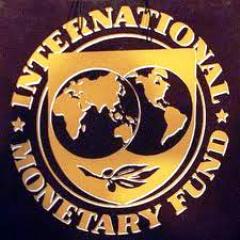IMF sees weak growth prospects for Sudanese economy in 2014
August 1, 2014 (WASHINGTON) – The Sudanese economy will grow modestly this year as a result of fiscal and monetary tightening despite a rebound in agriculture and oil sectors, the International Monetary Fund (IMF) said.
 The IMF report released last month as part of the Staff Monitored Program (SMP), projected a 2.6% Gross Domestic Product (GDP) growth in 2014 compared to 2.3% in the year before.
The IMF report released last month as part of the Staff Monitored Program (SMP), projected a 2.6% Gross Domestic Product (GDP) growth in 2014 compared to 2.3% in the year before.
Inflation however, is expected to drop sharply to 18% compared to 41.9% in 2013.
The IMF warned that the government’s continued dependence on the Central Bank to finance its budget deficit has fueled inflation and weakened the monetary policy framework.
In this regard, Khartoum told IMF officials that the Central Bank will “(i) cap temporary advances that are provided to the government in the first half of the year at SDG2.3 billion; (ii) refrain from providing direct credit to public enterprises or acquiring GMC securities in the primary market; and (iii) cease the rescheduling of overdue temporary advances to the government”.
The report also underscored the need to bridge the gap between the official and black market exchange rate which was estimated to stand at 35%.
“This gap, which stands currently at 35 percent and reflects insufficient availability of foreign exchange in the banking system, is driven by weak economic fundamentals, including a large current account deficit, low level of international reserves, and continued monetization of budget deficit, albeit at lower volumes,” reads the report.
“Staff reiterated that the existing gap weakens export and import incentives and distorts relative prices, while diverting legal private transactions, including remittances, to the curb market. Using various methods, staff estimated that the transactions diverted to the curb market may broadly account for 10 to 30 per cent of total imports. This, in turn, generates more pressures on CBOS’s international reserves,” it adds.
The IMF urged the Central Bank to gradually allow commercial banks and exchange bureaus to set freely the exchange rate quotes to customers and limit its intervention in the Forex market “to counteracting erratic fluctuations without resisting sustained trends, which could lead to loss of reserves”.
The report noted that remittances by Sudanese expatriates abroad are increasingly being channelled through informal routes to take advantage of the Forex black market premium pricing.
“A comparison between the average amount of remittances transferred in 2006-10 (a period during which official channels were used extensively) and those transferred in 2012-13 suggest that an important amount of about US$1billion of FX may have shifted to the curb market. This is likely a partial measure for the size of the curb market,” the report said.
The IMF also reiterated Sudan’s difficult debt situation and emphasised the need to limit non-concessional borrowing “to secure debt relief and ensure a sustainable situation post-debt relief”.
“In 2013, non-concessional borrowing reached US$602 million, mostly on semi-concessional conditions to finance agriculture, energy, and industrial development projects. Creditors included China, some Gulf countries, and Arab multilateral development institutions,” the report said.
Sudan’s external debt at the end of 2013 is estimated by Khartoum at $45.4 billion.
According to the report, Sudanese officials pledged to limit non-concessional borrowing to US$600 million and continue to secure from their creditors the most favorable terms as possible and restrict use of new resources only to finance priority investment items with positive returns.
IMF officials also urged Sudan “to avoid selective debt servicing as this may complicate reaching agreement with creditors on a debt resolution strategy”.
The report also disclosed that Sudan faced several lawsuits in 2013 from private debt holders which resulted in freezing of foreign assets owned by Khartoum.
“Court orders were executed in Bahrain and Dubai resulting in the freezing of foreign assets. The lawsuits were brought by four entities – Africa Alpha Fund, Habib CBOS Bank, Pomgrad Split, and Namco Anstalt. The total amount of money sought by them is about US$160 million. In one of these cases, a recent court ruling was favorable to the authorities. Staff advised the authorities to engage legal and financial advisors to help them address these lawsuits,” it said.
The IMF said that until debt relief is secured, Sudan will need to create a strategy that is based on “(i) better-targeted investment projects; (ii) a boost to export activities, notably in the agricultural sector; (iii) closer links with South Sudan; (iv) an improved business environment; and (v) better governance”.
The IMF announced last March that its managing director Christine Lagarde had extended its Staff-Monitored Program (SMP) for Sudan for the rest of 2014.
The SMP is an informal agreement between country authorities and IMF to monitor the implementation of the authorities’ economic program. SMPs do not entail financial assistance or endorsement by the IMF executive board.
In its letter to the IMF requesting a new SMP, Sudan noted that its economy “suffered significant setbacks during the past three years on account of the secession of South Sudan in July 2011, the ensuing rising economic imbalances, civil regional conflicts, continuing US sanctions, and an unsustainable external debt position”.
(ST)
